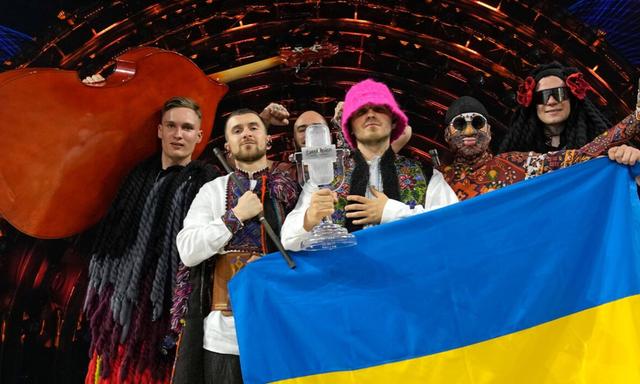The UK have begun talks to host next year's Eurovision Song Contest after the EBU have determined this year's winners Ukraine are in "no position to host".
Ukraine romped home to victory in May's contest, but owing to the current situation in the country, the EBU have said they have begun negotiations with the UK, runners-up in this year's competition, to host on their behalf.
It is a long-standing Eurovision tradition for the host nation to win, and despite popular misconception, the winning nation is under no obligation to host the following year's contest.
The winning nation can either nominate a different host nation, or in this instance, the EBU have determined that by virture of being runner-up, the UK is the most appropriate place to host the competition for 2023.
A statement from the EBU read "following objective analysis, the Reference Group, the ESC’s governing board, has with deep regret concluded that, given the current circumstances, the security and operational guarantees required for a broadcaster to host, organise and produce the Eurovision Song Contest under the ESC Rules cannot be fulfilled by Ukraine's public broadcaster."
"As a result of this decision, in accordance with the rules and to ensure the continuity of the event, the EBU will now begin discussions with the BBC, as this year’s runner-up, to potentially host the 2023 Eurovision Song Contest in the United Kingdom," the statement added.
Should the show take place in the UK, the show fully intends to honour Ukraine's status as winners of the 2022 competition.
The UK achieved their best Eurovision result since their 1997 victory in May's contest, and by virtue of them being runner-up, the EBU has opted to begin negotiations with the BBC to possibly host.
The prospect of the UK hosting next year's version of the competition was floated in May following Ukraine's victory, with Spain, Poland and Sweden also offering to host next year's competition on Ukraine's behalf.
The Eurovision was last held in the UK following their 1997 win, with the 1998 edition of the contest taking place in Birmingham.
The UK also stepped in to host the Eurovision on behalf of Luxembourg in 1974.
Luxembourg won the 1973 edition of the contest, but the small landlocked nation between Germany and France determined it didn't have the facilities to host the Eurovision.
The 1974 edition of the contest was held in Brighton, which saw ABBA introduce themselves to the world.








































































